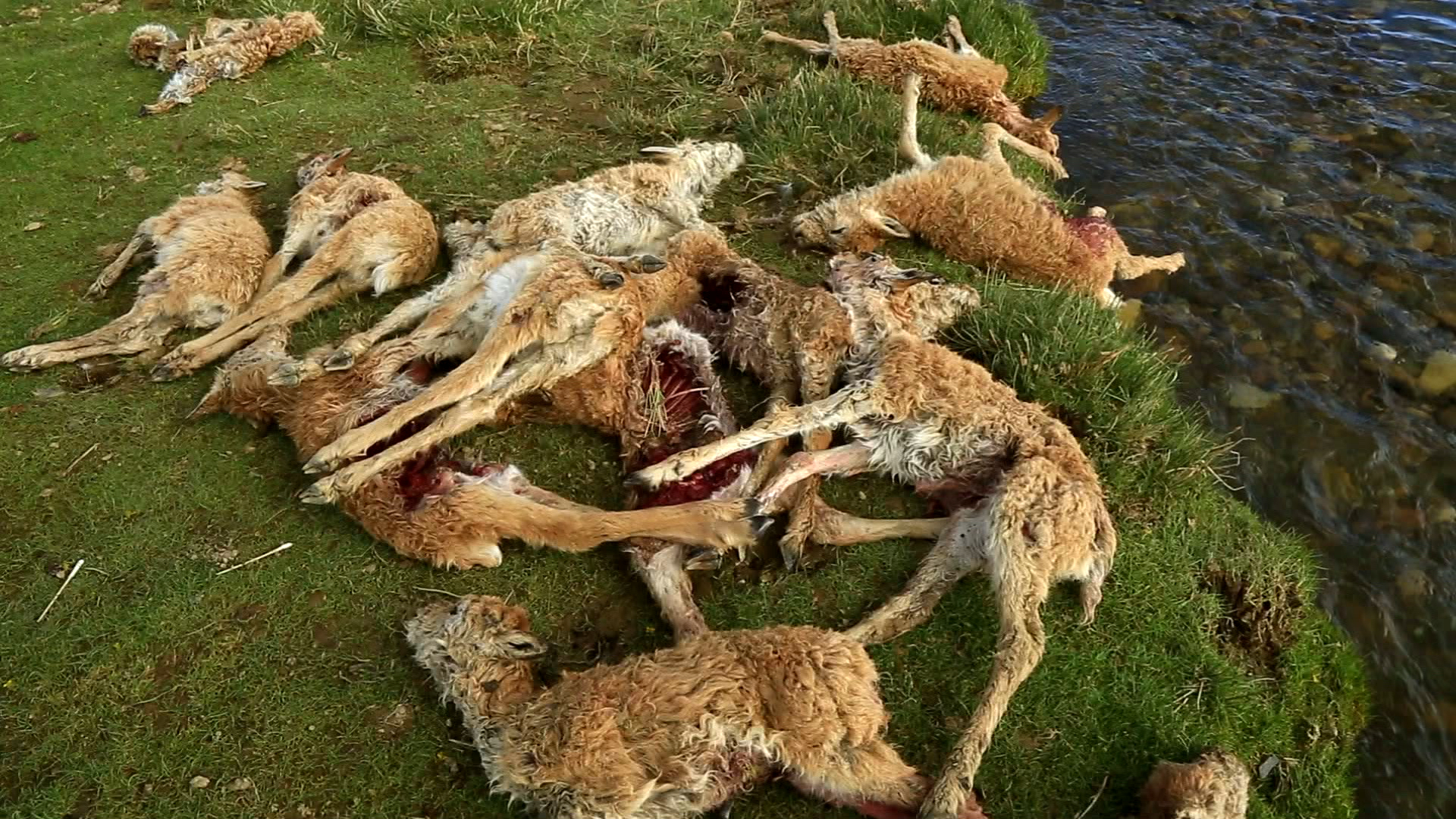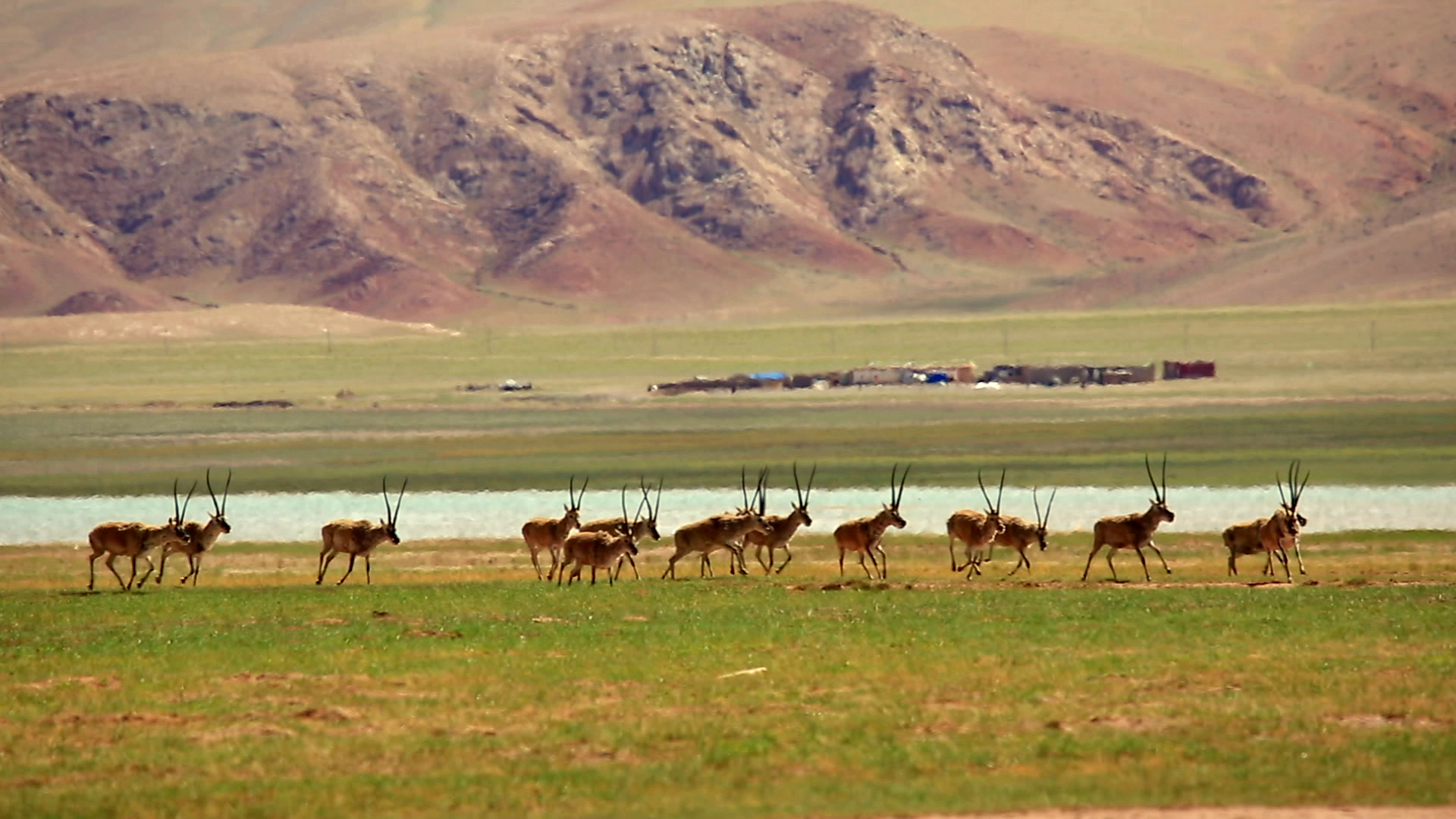

Renqing's family was relocated to Lhasa to protect the Tibetan antelopes and other wildlife of the northern Tibetan Plateau.
Thirty-seven-year-old herder Renqing and his wife, Ada, have three sons and a daughter. Ada is expecting their fifth child, who will be the first baby born in the newly relocated village in Duilong Deqing District in Lhasa.
Renqing often tells the story of their hometown to their children. Their previous residence is 1,250 kilometers from Lhasa. Qiangtang, 5,000 meters above sea level, is Asia's largest wildlife sanctuary, covers an area of 298,000 square kilometers.
Around 100,000 female antelopes will come to give birth near Ziwu Snow Mountain. It's an 80-square-kilometer area, the largest birthing site for Tibetan antelopes in the world.
Every summer, they'll return along their migration route after the calves are born. The route is fixed and never changes from one year to the next. Every December, the Tibetan antelopes choose a place to mate. Afterwards, the males and females go their separate ways.
During their migration the antelopes face many dangers. Apart from human poachers, they have numerous other natural enemies. Once, over a million Tibetan antelopes inhabited the Qinghai-Tibet Plateau. Now their number is only about 300,000.

A group of female Tibetan antelopes and their babies were killed by a bear. /CGTN Photo
Renqing used to get more than 250 sheep. His wife Ada and he took turns each day grazing them.
Grazing the sheep and milking them every day was their daily routine. It was last summer when they got the news: to protect the Tibetan antelopes and other wildlife, and the government wanted them to move to Lhasa. It was voluntary, not obligatory.
Renqing and his family were urged to think it over carefully: Education is better in Lhasa. And it's hard to find drinking water in Qiangtang. Officials say, life expectancy in Qiangtang is 10 years less than in other parts of Tibet due to the bad weather and poor health care. But Renqing said, at first, personally he wasn't willing to sell the sheep. He was afraid he wouldn't adapt to the life in Lhasa. He thought he'd struggle to survive. All he knew was herding sheep. He hesitated, but eventually they decided to go to Lhasa to look over the house the government had provided for them.
The house in Lhasa cost the family just 50,000 yuan (7000 U.S. dollars). It's roughly the price of 70 sheep, and they've got 10 years to pay it off.
Most of Renqing's relatives and friends moved to Lhasa, but Renqing went back to Qiangtang with his wife and two younger kids. They worked with eight other families. Some were looking after the sheep and others are looking after elder children, who were at the school in Lhasa.
Renqing's neighbor and friend Puqiong was also a herder. Meanwhile, the 47-year-old is the director of the Mayi Wildlife Protection Station. His wife Yucuo and their daughters now live in Lhasa, so every year, Puqiong spent one-month vocation in Lhasa, at the rest of the time, he worked in Qiangtang.
From their base at the station, Puqiong and his colleagues tour the reserve, preventing poaching and protecting the wild animals. Qiangtang National Nature Reserve has 780 rangers, mainly farmers and herders. They belong to 73 teams, and are responsible for protecting the wild animals and biodiversity in the Qiangtang area.

Puqiong and his colleagues salute Loubu Yujie who lost his life in a battle with poachers in June 2002 and passed away at the age of 40. /CGTN Photo
Different from Renqing, Puqiong's wife Yucuo tried to work in Lhasa, but had difficulty landing anything. Yucuo decided to establish a tea house. After a long and complicated process for applying for the business license, she finally got it. Now her tea house is doing well, bringing in some extra money to help support the family.
Renqing's youngest son Danzeng Jiacuo was born on August 21, 2019 in Lhasa.
For the sake of the Tibetan antelopes and other wildlife, and for the sake of our children's future, Renqing finally sold all their sheep.

A group of Tibetan antelopes pass the habitation of human beings, Renqing's hometown in Qiangtang. /CGTN Photo

Copyright © 2018 CGTN. Beijing ICP prepared NO.16065310-3
Copyright © 2018 CGTN. Beijing ICP prepared NO.16065310-3